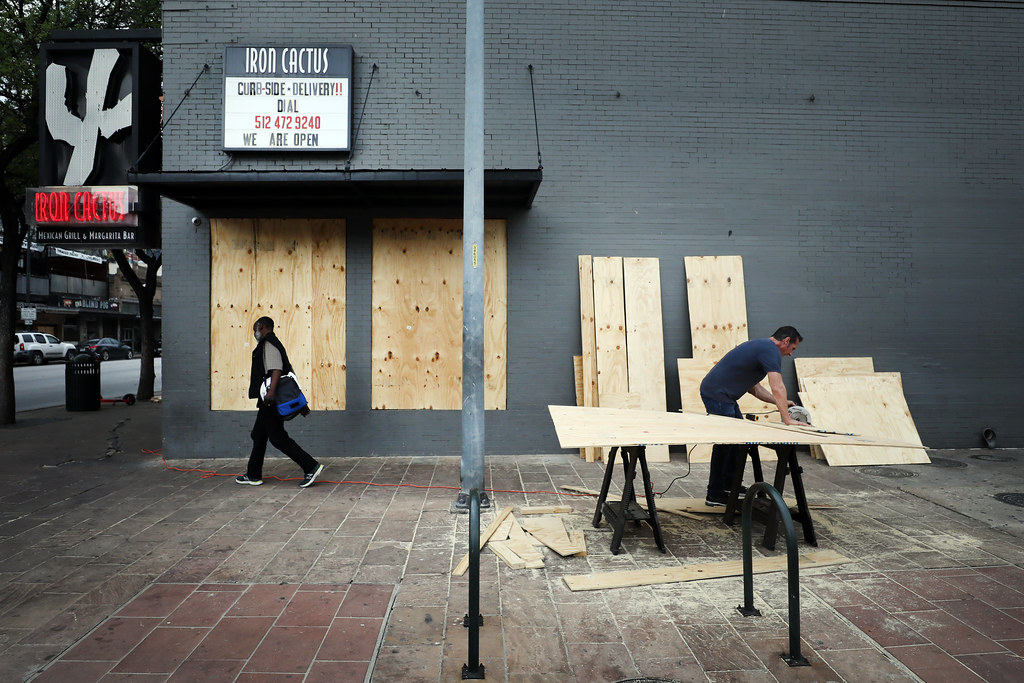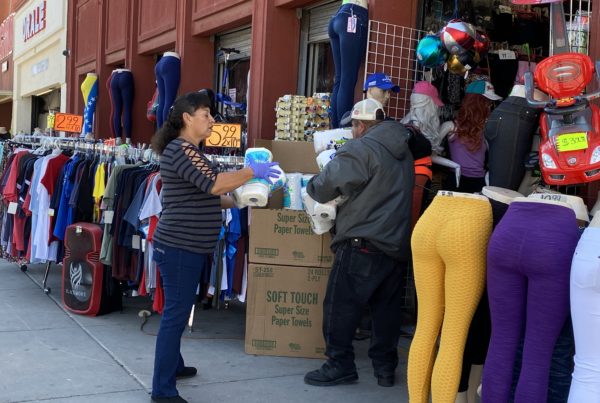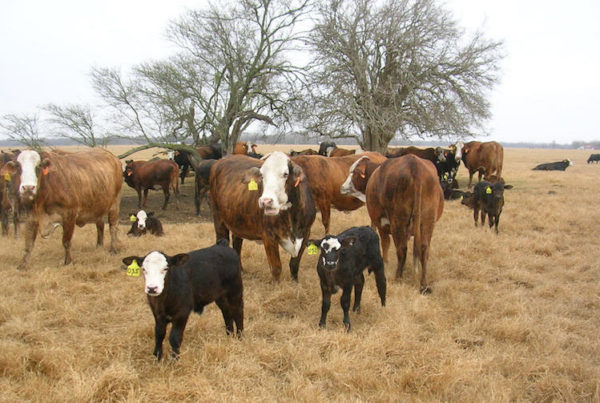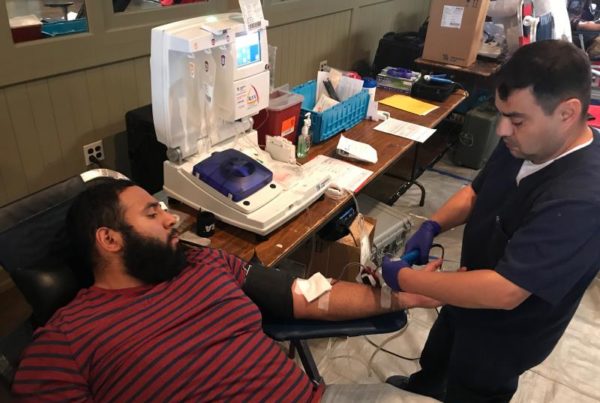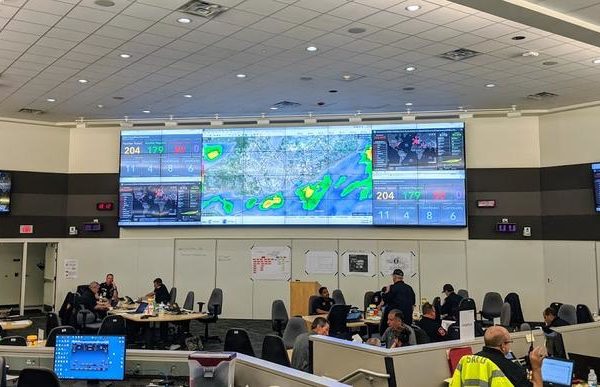This story has been updated and corrected. See editor’s note at the bottom of this page.
Texas State Comptroller Glenn Hegar said Tuesday it could take months to measure the economic impact of the business-related closings caused by the coronavirus pandemic. But so far, it’s hitting the Texas economy hard, and the state will likely tap into reserve funding.
Hegar said his office originally assumed that the state’s low unemployment rate, which has sat at about 3.5%, would go up to about 6%. But this week, new forecasts reviewed by his office indicate that the rate will likely rise to 9%.
Hegar’s office is looking at several options to keep the state’s economy stable. One option is to cut state agency budgets. He also said the state will likely have to use some of the Economic Stabilization Fund, also known as the rainy day fund. That fund, as of last October, was projected to be about $9.3 billion by the end of the 2021 fiscal year.
“We’re probably, without a doubt, going to have to use part of the Economic Stabilization Fund,” Hegar told Texas Standard.
But Texas faces uncharted territory.
“We are trying to look at all the things in the past to figure out, are there predictors for the future? And reality is, there’s not a downturn of anything similar to this,” Hegar said.
He expects Texas’ revenue to drop by several billion dollars when he does the state’s budget estimate this summer.
One third of what Hegar said is the state’s annual $126 billion budget comes from the federal government. Of the remaining two-thirds, 58% is funded by sales tax. Last month, Texas collected about $3 billion in sales taxes. That number will surely fall. But Hegar told Texas Standard it could be months before we see exactly how big that decrease would be.
Texas’ five biggest metropolitan areas are expected to be under shelter-in-place orders by Tuesday evening. The goal would be to slow the spread of the coronavirus so that hospitals aren’t overwhelmed with patients. But such an order has economic consequences.
In Texas, the comptroller is the state’s’ chief financial officer. Hegar told the Texas Standard on Tuesday that the pandemic, coupled with a severe drop in oil prices after Saudi Arabia flooded the market in early March, are having a big impact on Texas’ economy.
“All types of consumer spending is being fundamentally changed as people’s activities are not being normal,” Hegar said.
He also said the United States is likely entering a recession. The hardest hit so far is the hospitality industry.
“There’s not a restaurant anywhere that has in their business plan that you don’t have any patrons in your restaurant for several days, much less several weeks,” Hegar said.
That forecasted 9% unemployment rate will likely continue to climb into the double digits. In the short term, Hegar said Congress will have to step in to ease the financial burden on people who’ve lost their jobs.
Editor’s note: During our interview that aired on March 24 with Texas Comptroller Glenn Hegar, he discussed the unemployment picture in Texas. In a previous version of our digital story, we incorrectly attributed a 9% percent unemployment rate as the most current one available. We have since been told by the state comptroller’s office that this 9% percent Texas unemployment rate is a forecast communicated to the office by outside advisers this week, not the actual unemployment rate as of March 24. Here’s the exact quote from Hegar, as heard in the audio above:
And so, you know, you’re seeing, unfortunately and tragically, unemployment rates are increasing. At the beginning of last week, assumptions from several different sources that we use thought unemployment would go from the record lows of what we have been having of 3.5% up to 6%. By the end of the week – no, this thing is worse than that. It’s up to probably 9%. And I have no doubt that people are going to start forecasting it’s going to be slightly in the low double digits.
We regret the error of attribution.
Written by Terri Langford and Caroline Covington.


